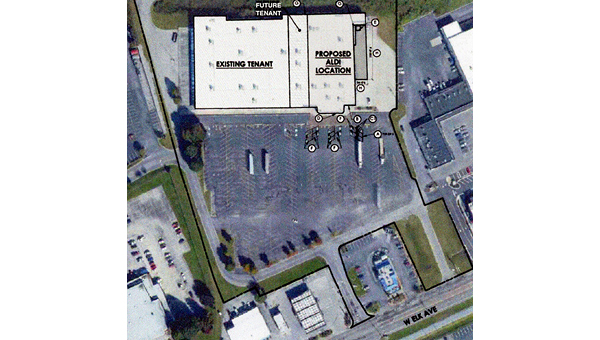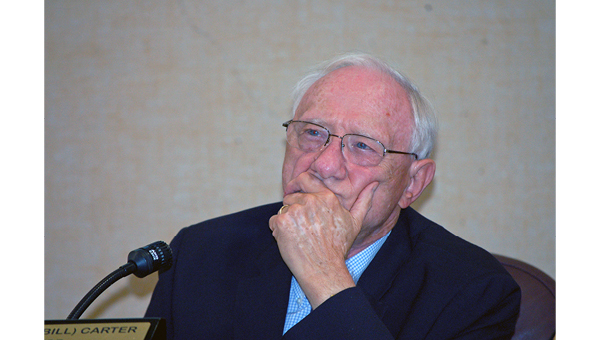Blessed are the poor in spirit
Published 9:21 am Friday, June 1, 2018
By PASTOR BRANDON YOUNG
The Lord has led me to preach a series of messages on the beatitudes, and I would like to share some of the highlights of those messages with you all in the Solution Column over the next few weeks. Jesus Christ gave us the eight beatitudes in the Sermon on the Mount, recorded in the Gospel of Matthew. As I studied the Sermon on the Mount, I found an intriguing fact: Jesus didn’t preach the sermon from the top of a mountain. He preached it from halfway down the mountain, with his hearers above him in a natural amphitheater. Sound projects upwards and is “caught” by the amphitheater shape (precisely why the ancient Greeks and others used that shape). When tourists have visited the Church of the Beatitudes on the top of the mount at night with no one around, they can clearly hear fishermen talking down by the sea. It is amazing how the voice of Jesus was carried naturally to all those listening.
Matthew’s Gospel was directed to an audience steeped in Hebrew tradition. The Ten Commandments, given to Moses on Mount Sinai in the Old Testament Book of Exodus, related a series of “Thou shalt not” phrases: evils one must avoid in daily life on earth. In contrast, the message of Jesus is one of humility and brotherly love. He teaches transformation of the inner person. Jesus presents the beatitudes in a positive sense, and these virtues will ultimately lead to reward. Love becomes the ultimate motivation for the Christian. These beatitudes also bring peace in the midst of our trials and tribulations on this earth.
Beatitude means a condition or statement of blessedness. In the Latin of the Vulgate, beatus, the word for blessed, happy, or fortunate. Oftentimes the beatitudes are referred to as “The Happys.” A pastor once said, “Reading the Beatitudes, it really does make you stop and look back at Jesus and scratch your head. Poverty, mourning, hunger and thirst, persecution — “Lord, when you say ‘happy,’ I don’t think you mean what I mean. He doesn’t; He means much more.” According to St. Gregory of Nyssa, the opposite of beatitude is misery. Misery means being afflicted unwillingly with painful sufferings. Now that we have covered a bit about the Sermon on the Mount and had an overview of the definition of beatitude, let’s dive into the first beatitude. What does it mean to be poor in spirit?
Well, it does not mean to be poor in the Holy Spirit. It is the word spirit with a lowercase “s.” We are told to be poor in our spirit which means to be poor in self. If you put the word “humble” in place of the word “poor,” you will understand what He meant. In other words, when we come to God, we must realize our own sin and our spiritual emptiness and poverty. We must see our self as a wretch in need of a Savior! We must not be self-satisfied or proud in our hearts, thinking we don’t really need God. If we are, God cannot bless us. We need less of us and more of Him! So your question may be, “How can we have less self?” It all begins with submission.
Submission brings humility! To be a good advertiser of Jesus Christ, we must live humbly. To live humbly, we must submit ourselves to the will of the Father. To submit means: to yield your will to, obey, put first the other person. Literally the idea is to “voluntarily place yourself under another’s authority.” Submission in a choice of the will. We are called to “submit ourselves.” We willingly humble ourselves and place ourselves under the authority of God. If we submit ourselves to God, we can resist Satan and he will flee from us. James 4:7 reminds us, “Submit yourselves, then, to God.” The basis of our submitting ourselves to anyone else is primarily because we submit ourselves to God. He comes first in our lives. And because we want to obey him, we voluntarily place ourselves under the authority of others. Because we serve God, we serve others. We depend upon God for everything realizing that we are bankrupt on our own. Barbara Nicolosi gives a great summary of type of spiritual poverty.
Ms. Nicolosi says, “Spiritual poverty is to recognize that you are helpless over your fallen human nature in the way the alcoholic recognizes he or she is helpless over alcohol. You are helpless over your attractions to sin. You are helpless over your fear, your pride, your lust, your selfishness, your irritation, your dislikes and your affections. Your heart longs for meaning and depth but you never seem to be able to step up and be whom you know you could be. You are helpless over your body which wants to eat more than it should, to lay around when it should move, to take what it wants when it wants it, to reach for easy forbidden pleasures even when our mind tells us they are destructive. Blessed are you when you know this is who you are.”
When we recognize who we really are, and we are willing to admit it, then we are truly a person poor in spirit seeking the kingdom of God. Poverty of spirit is recognition that we didn’t make ourselves and hence we proceed from One who was rich enough to have made us. Our poverty of spirit is saved by God’s bounty of spirit. Because our Creator loves us, our brokenness motivates only His compassion. He sent His Son to take on our nature so that we could approach him as his child. Blessed are they who don’t hide themselves from the Father in fear and deny their darkness, but rather, acknowledge their errors like the weaknesses of a small child before his Father. Blessed are they who throw themselves into God’s arms and trust in His love. Blessed are they who want to be what God fell in love with when He brought them into being. Will you come running to him today with all of your flaws and failures?
(The Solution Column is provided by Brandon Young, Pastor of Harmony Free Will Baptist Church, Hampton, and his associate, Hunter Greene.)





